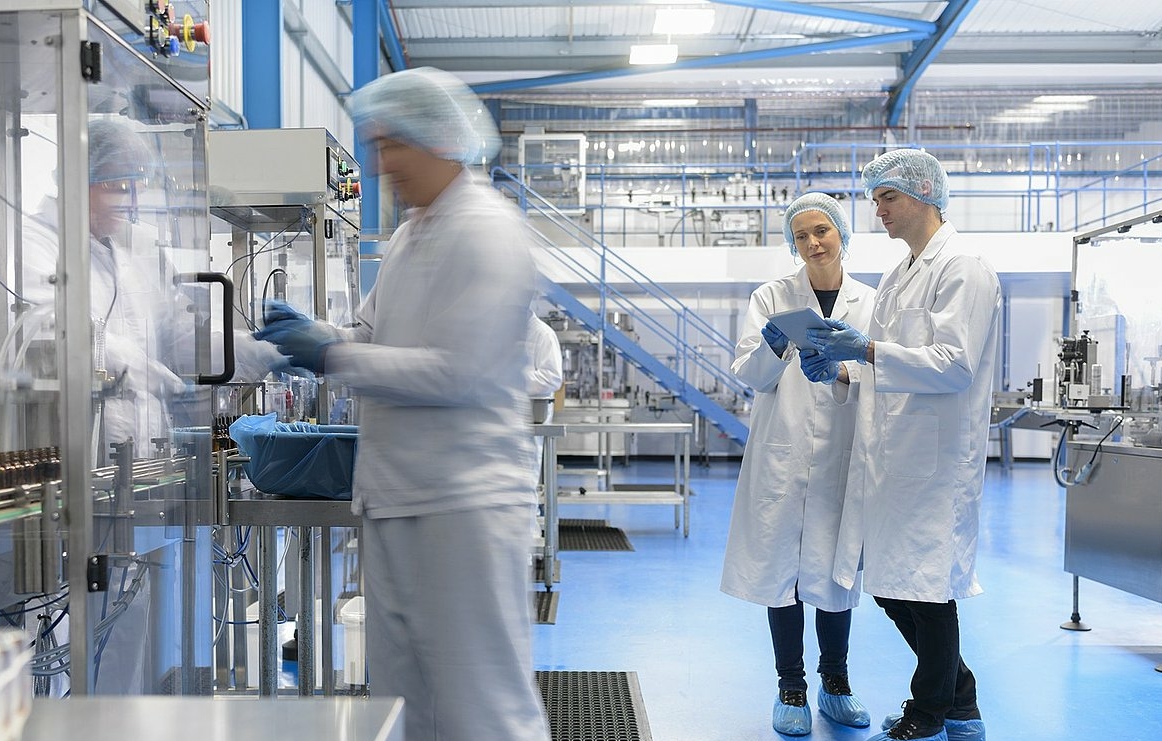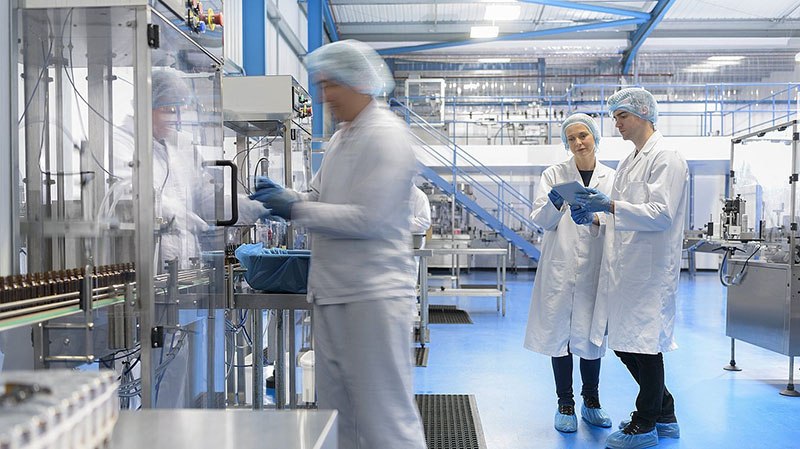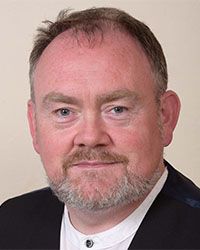Stop doing things that don’t work and stand out from your classmates
You’re all going to leave with the same qualification, so how can you stand out from the crowd and set yourself apart?
The answer is simple…
- Learn to “talk the talk” of the pharma industry so you can confidently answer interview questions and show a genuine understanding of this unique industry
- Don’t waste limited application opportunities making mistakes – know how to write a CV that really catches attention, learn how to answer different types of interview questions, and figure out how to sell the unique skills you already have
This programme will give you all the technical and job application skills you need to turn your education into an entry level job in pharmaceutical manufacturing. After just 10 weeks (or 10 days in the Fast Track option), you’ll be ready for interviews and confident in what to say to employers.
We deliver the program online through one centralised platform (Moodle). This is where you can log into your classroom, get assignments and interact with faculty. Each week you’ll complete a series of videos, quizzes, interactive activities, and projects through our online platform, available to access 24/7.
You’ll have a dedicated course leader who will email or telephone you if it looks like you’re starting to fall behind.
Please note: There are NO ZOOM classes or webinars!
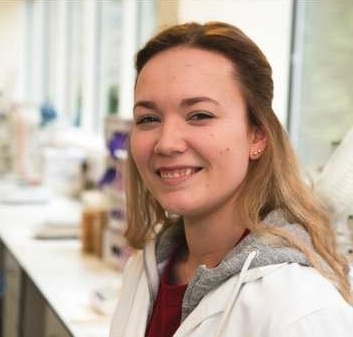
What You Earn
Earn a Certificate of Award in “Manufacturing Safe Medicines and Medical Devices (GMP)” by successfully completing all written assessments and end of modules assignment.
Add details of your certificate to your CV/Resume or your LinkedIn profile.
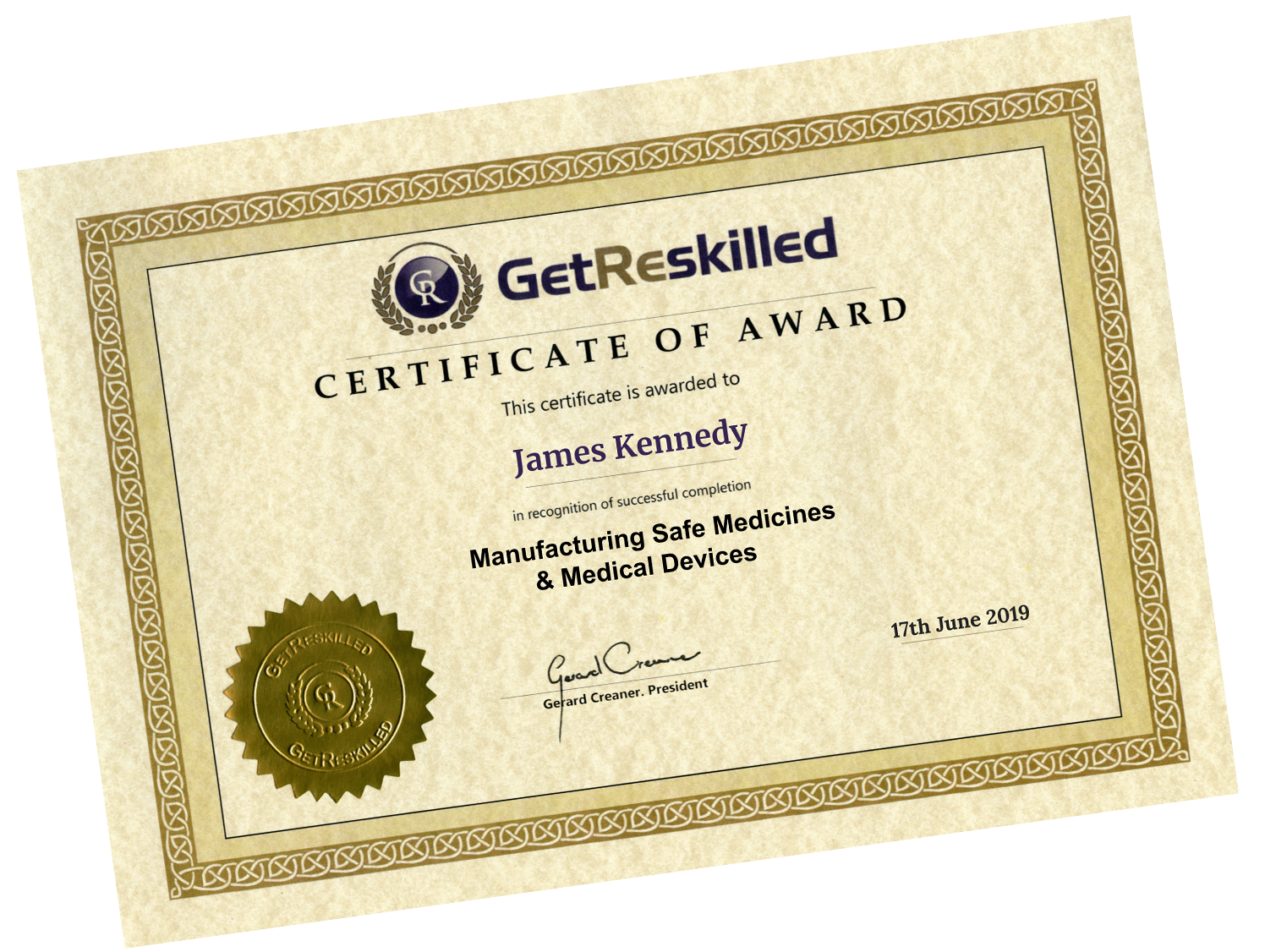
What you’ll learn – There are 2 modules in this 10-week programme
Module 1 – Manufacturing Safe Medicines (6 weeks)
In this module, you’ll learn about the systems used in pharmaceutical manufacturing. You’ll learn about the rules and regulations that need to be followed. And you’ll learn enough technical information to get you talking to employers. You’ll spend 4 weeks learning new technical content and then 2 weeks writing your assignment (but don’t worry, we’ve got a professional writing skills programme to guide you through the assignment writing process and equip you with the written communication skills you need for starting in the industry).
- Introduction – to pharmaceutical, (bio)pharmaceutical manufacturing in a GMP (Good Manufacturing Practice) regulated environment, quality systems vs regulation vs validation
- Industry regulations and guidelines – including, FDA GMPs for the United States, EMA GMPs for Europen Union, ICH, and PICs GMP regulation
- FDA medical device rules – medical device regulations & guidelines
- GMPs vs ISO 9001:2015 – what’s the difference and why we use both
- Process validation and documentation – design and verification of manufacturing systems
- Key manufacturing technologies – such as organic chemical synthesis, biopharmaceutical manufacturing, tablet manufacturing and aseptic & sterile manufacturing
- Supporting technologies – such as purified water generation, storage & distribution, clean steam, water for injection, storage and distribution
- Introduction to Quality Risk Management (QRM) – and the importance of risk management and the basic steps involved in its application
- Professional Writing Skills Program – This will guide you through the assignment writing process and equip you with the written communication skills you need for working in the industry
Module 2 – Advanced Job Hunting Skills (4 weeks)
In this module, you’ll navigate your way, step by step, through the job hunting process for the pharma industry. By the end of it, you’ll know which jobs you’d be perfect for, where to find them, and how to make applications to give yourself the best chance at success.
After you complete this module:
- You’ll know about your local BioPharma/MedTech manufacturing industry in detail and where the jobs are.
- You’ll know which jobs you’d be perfect for and where to find them.
- You’ll be able to assess your own skill set and know how to sell that to employers.
- You’ll know what employers expect from your application and from a job interview.
- You’ll be able to follow a step-by-step process to find, apply and successfully interview for your first job in this industry.
You’ll produce a number of deliverables throughout the course including…
- Complete two workshops on Fault Tree Analysis (FTA) and Failure Mode Effect Analysis (FMEA)
- Complete four-question booklets (one for every week’s worth of content) which will summarise what you have learnt for the week and ensure you retain and understand the information.
- Complete an end of module 4-5 page assignment to include:
- The key requirements of a quality management system
- The cleaning validation sequence and how to determine cleanliness levels
- The documentation of a complete risk management process in terms of identifying risk, analyzing risk, evaluating risk and controlling risk.
- The typical equipment and process stages used in the manufacture of active pharmaceutical ingredients
- The generation, storage and distribution of pharmacopeia grade Purified Water (PUW).
- The common cleanroom configuration and airflow direction that governs personnel and material flows in a biopharmaceutical manufacturing environment
And take the following skills and knowledge to your new job…
- You’ll have a foundation in how safe medicines and medical devices are made in a regulated GMP environment.
- You’ll be able to participate in root cause analysis projects.
- You’ll have enough technical knowledge and understanding of the quality culture necessary to work in this environment.
-
You’ll have the written communications skills to properly write reports and reference and cite source material in a manner that is consistent with the professional norms of this industry.
- You’ll be able to work with professionals in this sector without feeling lost or intimidated by the specialised terms and frameworks used in this sector.
Your 10-Week Class Schedule
Your Class Director will check your study logs and only will release subsequent week’s materials to you if you have been logging in for more than 10 hours per week.
And he or she will proactively follow up with you to keep you on track.
Module 1 – Manufacturing Safe Medicines and Medical Devices (GMP) (Weeks 1-6)
Module 2 – Advanced Career Coaching (Weeks 7-10)
Delivered by a Practicing Industry Expert
Dr. Joe Brady
Full-Time Validation Lead
Lecturer, Technological University Dublin, Ireland
Senior Associate, GetReskilled
Dr. Joe Brady is a full-time practicing Validation Lead and an assistant lecturer with Technological University Dublin (TU Dublin), in the School of Chemical and Pharmaceutical Sciences. Joe is a certified trainer and highly experienced in competency-based training. He designs and prepares educational modules and full academic courses ranging from MSc, MEngSc. BSc, to Certificate level, for a range of academic institution.
He is also a supervisor for MSc/MEngSc and PhD theses. Joe has over twenty years of project experience in the pharmaceutical, biopharmaceutical and medical device industries in Ireland, Singapore, China, The Netherlands, France and the USA.
Meet Your Online Classroom Support Team
We have a team of in-house experts to provide guidance and support, whenever you need it.
Career Coaching

Meet Claire who runs GetReskilled’s Advanced Career Coaching Programme – our specially devised job hunting course that helps our trainees take that final step into employment by leading them through the job hunting process.
Course Leaders, Coordinators and Classroom Support

Your Course Leaders & Coordinators are here to provide you with answers, tips, and are going to check your progress weekly to keep you on track and will reach out to you by email or even by phone if you fall behind!
Price & Start Dates
Or €799/month for 3 months.
Price Includes:
- End of week progress checks by us to MAKE SURE you finish the program
- Delivered online so you can learn from home (or anywhere) on your own schedule
- Robust job hunting program that will seriously help you find a job
- Regular & ongoing access to a dedicated career coaching counsellor
No Hidden Fees
- No application fees
- No registration fees
- No resource/book fees
- No certificate fees
Or £699/month for 3 months.
Price Includes:
- End of week progress checks by us to MAKE SURE you finish the program
- Delivered online so you can learn from home (or anywhere) on your own schedule
- Robust job hunting program that will seriously help you find a job
- Regular & ongoing access to a dedicated career coaching counsellor
No Hidden Fees
- No application fees
- No registration fees
- No resource/book fees
- No certificate fees
Price & Start Dates
Or £699/month for 3 months.
Price Includes:
- End of week progress checks by us to MAKE SURE you finish the program
- Delivered online so you can learn from home (or anywhere) on your own schedule
- Robust job hunting program that will help you find a job
- Regular & ongoing access to a dedicated career coaching counsellor
No Hidden Fees
- No application fees
- No registration fees
- No resource/book fees
- No certificate fees
Or €799/month for 3 months.
Price Includes:
- End of week progress checks by us to MAKE SURE you finish the program
- Delivered online so you can learn from home (or anywhere) on your own schedule
- Robust job hunting program that will help you find a job
- Regular & ongoing access to a dedicated career coaching counsellor
No Hidden Fees
- No application fees
- No registration fees
- No resource/book fees
- No certificate fees
Application Deadline: Wednesday 9th July
Program Starts: 16th July
Start Your Application
Click below to start your application.
Talk To Our Team
Ireland
Call Geraldine: +353 (0)21 2409016
USA/World
Call +1 (617) 901 9268
Got More Questions?
Fill out the form below and we’ll get back to you in one working day.
If you’d like to chat with us quickly, click on the blue chat bubble located in the bottom right corner of the page. We usually respond within a few minutes to a few hours.
